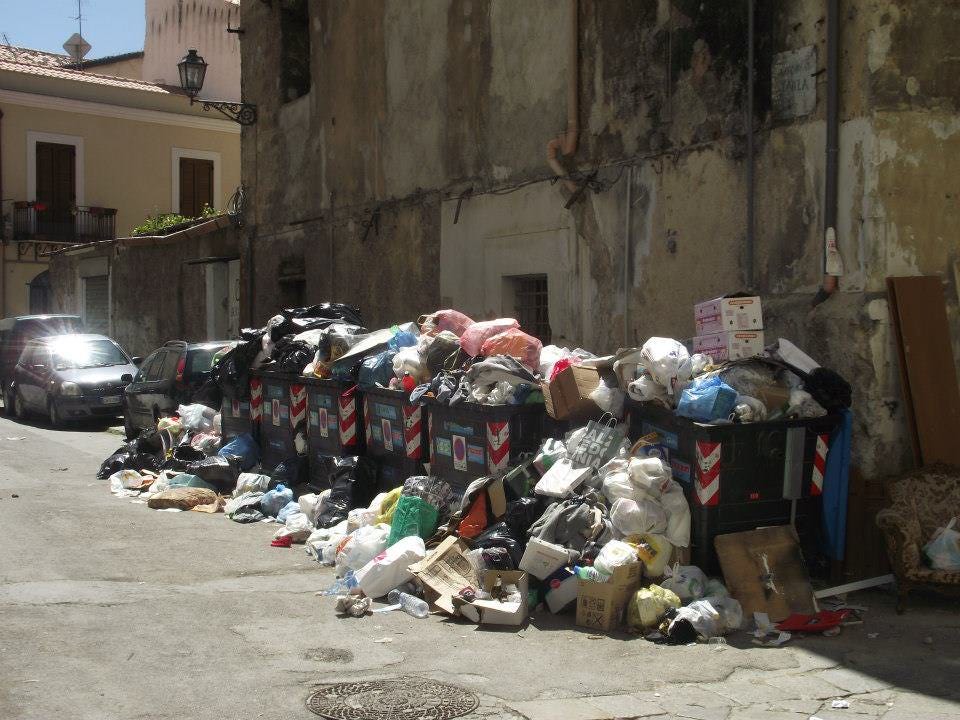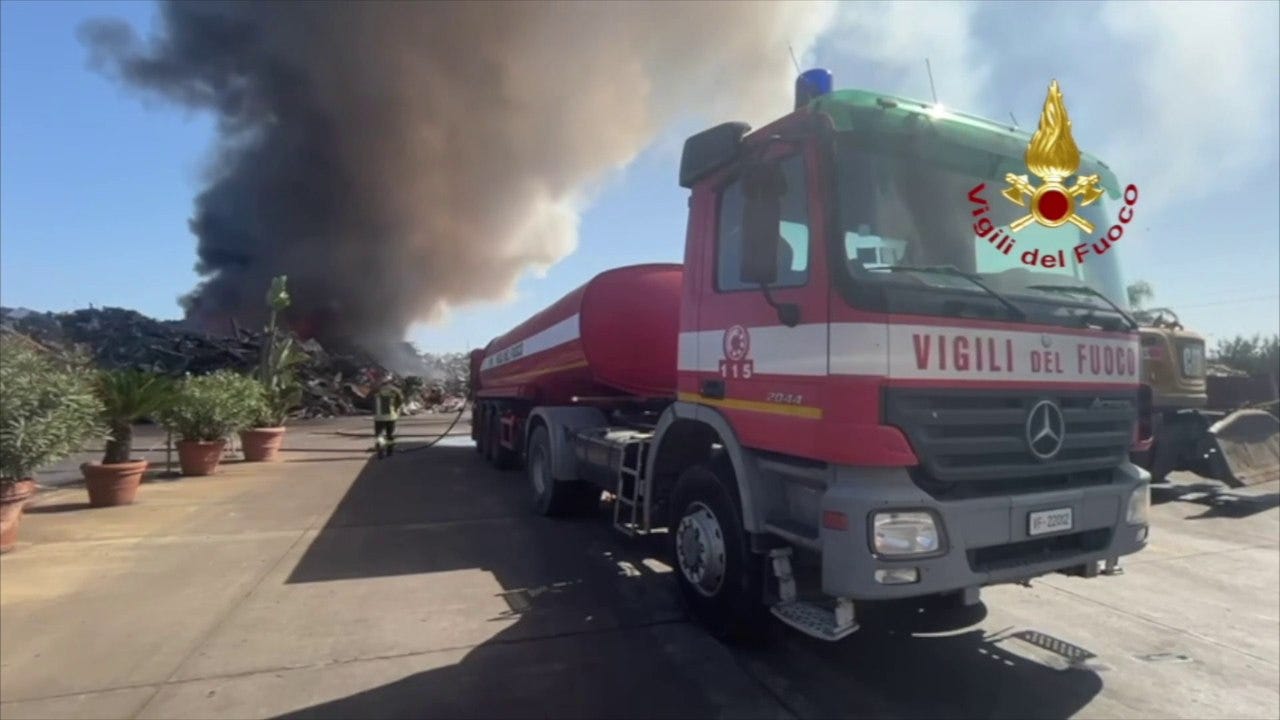I was on the Bakerloo line yesterday and it seemed to me - miracle of miracles - that the interior of the carriage had been cleaned of its graffiti. Great news if so. As for the phone-snatching epidemic, I noticed some of the signs warning travellers against taking out their phones in Vauxhall station, so that is me told. Are these bold measures a sign that London in on the up?
Meanwhile, pity the poor people of Palermo. Here is the latest report from the Giornale di Sicilia, translated and slightly redacted.
“The Palermo association of hoteliers has recorded an average decline of 10% compared to the same period last year.
"This figure," says Rosa Di Stefano, president of Palermo's hoteliers, "is a wake-up call. Palermo has extraordinary potential, but the perception of insecurity among tourists is eroding our attractiveness. In a highly competitive global market, a destination's image is crucial. If we don't take immediate concrete action to improve urban safety and the management of public spaces, we risk losing the position we've achieved in recent years."
As the Tourism Satellite Account [What’s that? Ed.] demonstrates, every euro spent by a visitor multiplies along the entire economic chain, generating widespread benefits and stable employment. Palermo, with an estimated added tourism value of €795.5 million, remains among the top twenty Italian destinations in terms of tourism-generated wealth (16th in the 2025 national ranking). Tourism in the city, in fact, is not just hospitality; it also effects the restaurant, crafts, commerce, events, culture, and transport sectors…
"Protecting the Palermo brand," Di Stefano concludes, "means protecting thousands of jobs, hundreds of businesses, and an economy that can continue to grow if supported by appropriate policies and a long-term vision. Tourism is, at the same time, one of the most powerful economic drivers of hundreds of Italian communities and one of the most undervalued assets of our productive system."
So it is too bad that the Palermo brand, like the London brand, is taking such a battering, thanks to the same thing, street crime. While in London they just snatch your phone, it seems much worse in Palermo, where tourists have been assaulted and in some cases raped, as I have noted elsewhere.
The article has drawn an enlightening and exasperated comment, pointing out that it is not solely crime, which I reproduce here:
“Please do not discount the filth and neglect of the streets... from the airport to Mondello, especially near the junction, it's a sad sight of abandoned rubbish... not to mention the roads full of weeds and the blocked pavements, as well as the damaged road surface that gives the impression of complete abandonment... and if we then talk about beaches and coasts, filth is rampant... cleanliness of the city, decorum and safety must be a priority if you want tourism, words and good intentions aren't enough; you need facts and a significant effort, including in the media and in civic education.”
All too true. Palermo is filthy. It seems that cleaning up the rubbish is simply a bridge too far. (The same goes for many parts of London, and other urban environments all over the world.) Yet there are plenty of places, even in Italy, where rubbish collection happens like clockwork. So what is Palermo’s problem?
Cross the island to Catania, and there, in the industrial zone, there has been a huge fire caused by the combustion, spontaneous or otherwise, of one of the city’s rubbish recycling centres. See the video above for excellent pictures. In addition, this article and video give a clear picture of the horror. According to La Sicilia, the fire is now under control, but the entire city is dominated by a black cloud of toxic smoke. Of course it is very hot in August, and that does not help, but this fire may not have been an accident. The investigators had this to say: “The fire was not started deliberately, but is presumed (since the investigation has not been completed) to have been caused by the friction of ferrous materials, which, fuelled by atmospheric agents, caused the fire.” I wonder what that means. But one thing is certain, if you want to wreck the environment, starting a fire in a plastics and cardboard recycling plant is a good way to go about it.
The fundamental point is that litter, filth, toxins in the air, graffiti, all the things that wreck the environment, are clearly man-made; they are all things we do not want, but which have been foisted on us by a small group that wants to wreck it for everyone else. The ruin of Sicily’s environment, along with the ruin of the human environment through street crime, and the failure of government to do anything about it, ram home to everyone that the state has failed. And who benefits from this? The Mafia, of course, the organisation that flourishes when the state falters. The organisation too that has a long history of environmental devastation to its eternal discredit.
PS To buy The Chemist of Catania, the first in the series of my Mafia novels, follow this link. To read the latest in the series, The Peace of Palermo, go here.






I’ve just bought The Chemist of Catania. It’s fantastic! I love the unusual style which seems to give an overview of everything which is happening at any given moment in the book.